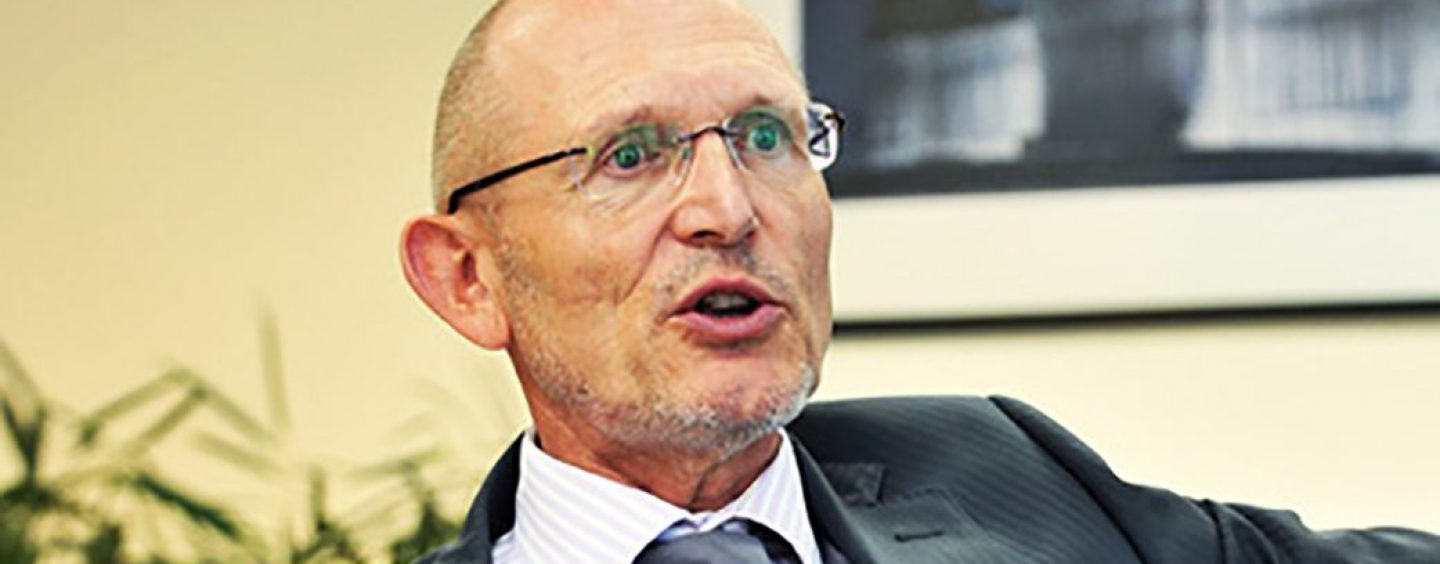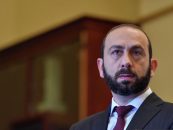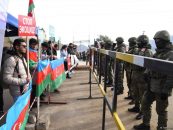
I Believe Azerbaijan is Becoming Increasingly Aware of The Importance of Ever Closer Ties with Europe
Exclusive interview with Herbert Quelle, Ambassador of Germany to Azerbaijan.
AT: Mr. Ambassador, are you satisfied with today’s German-Azerbaijani relations? How does Germany see its future policy towards Azerbaijan?
Our bilateral relations are close and trustful. They cover all areas you may think of – economic and commercial, cultural and scientific, social and political issues. The interviews with representatives of various German organizations active in Azerbaijan featured in this issue of “Azerbaijan Today” give you a good impression of the wide scope of our relations. Therefore, I will rather focus on the socio-political sphere here.
Germany was among the first countries to recognize Azerbaijan’s independence and our countries established diplomatic relations in 1992. But of course, our common history is much older, dating back as far as the beginning of the 19th century. From 1819 on, peasants and artisans from south-west Germany were invited to settle in Azerbaijan, then part of the Russian empire. They founded a number of villages, among them Helenendorf (today: Goy-Gol) and Annenfeld (today: Shemkir), where many old German-style buildings including the churches have been preserved. The German settlers made important contributions to the economic development of the country, most notably by setting up a thriving wine industry. Their success story came to a halt and the German minority in the country disappeared when they were deported to Central Asia after Hitler’s attack on the Soviet Union in 1941. But I learned that many Azerbaijanis still remember the Germans as being part of Azerbaijan’s history, and this is probably one of the reasons why Germany enjoys such an excellent reputation in Azerbaijan. This in turn makes my job as Ambassador very agreeable.
On the other hand the German public is also showing increasing interest in Azerbaijan. Thanks to numerous public diplomacy activities by your Embassy in Berlin, Azerbaijan is no longer perceived only as a booming oil economy, but also as a country with a rich and enticing culture worth to be discovered. In this context, the Eurovision Song Contest taking place in Baku in May 2012 is a huge opportunity for Azerbaijan to present itself to the world as an open, vibrant, diverse and tolerant society.
Even though the level of our relations is good, there is always room for reinforcement of existing fields of cooperation and for finding new ones. Therefore, German and Azerbaijani officials from various institutions conduct meetings on a regular basis, and there is an open exchange of views on all issues, including some where we might have different views like the assessment of democracy and human rights in Azerbaijan. This exemplifies that our relations are characterized by mutual trust and respect. Germany acknowledges the successful development Azerbaijan has achieved in many areas since obtaining its independence, while we also see the remaining challenges, for instance ensuring adequate social and political participation of the population. Our role is not to lecture or to criticize Azerbaijan, rather we offer to share our own experiences on the matter with the Azerbaijani side.
AT: How do you evaluate the integration process of Azerbaijan to Europe?
Most people would agree with me that geographically Azerbaijan has always been part of Europe. But only after obtaining its independence in 1991, Azerbaijan has been able to translate existing feelings of affiliation into concrete cooperation, and Europe, in turn, has had the chance to take a closer look at the European characteristics of Azerbaijan.
Germany has always welcomed and supported the policy of the government of Azerbaijan to integrate into various European institutions (most notably OSCE and Council of Europe), to develop cooperation with the EU in the framework of the European Neighborhood Policy and since 2009 the Eastern Partnership, and more generally to look towards Europe as one important point of reference in cultural and political terms. Germany assists Azerbaijan in the necessary harmonization processes. For example, we have become involved in a number of EU twinning projects.
Azerbaijan is entirely free in its decision how far it might take the integration into EU structures. I understand that the government does not intend to apply for EU membership in the foreseeable future. But, nevertheless, the association negotiations are advancing and I believe Azerbaijan is becoming increasingly aware of the importance of ever closer ties with Europe. If the country wants to diversify its economy, knowing the exact demands of the sophisticated European market and adapting to its standards is a most useful element in this process. If your products are accepted on the European market, you can practically export to anywhere in the world. And you should be export-oriented if you build up an industrial base. A country with only 9 mln inhabitants is a very restricted market. So my country is certainly looking forward to Azerbaijan scrutinizing all its possibilities in closer cooperation with the EU and in fulfilling the respective requirements.
AT: At the end of October Azerbaijan was elected as non-permanent member of the UN Security Council. Azerbaijan will represent Eastern Europe in this organization for 2 years. In your opinion, how important is this event for Azerbaijan?
I see the election of Azerbaijan into this important institution as a great success, and myself, as well the German Foreign Minister, have congratulated Azerbaijan on this achievement. It is proof of the global recognition Azerbaijan enjoys. It goes without saying that a successful two-year term in the Security Council will increase its prestige and political weight. At the same time, these two years, during which Azerbaijan will be a member of the institution that bears great responsibility for global peace and security, will also serve as an acid test to the diplomatic service of your country, which has been expanding and professionalizing at great speed. With regard to policy issues, Azerbaijan will learn like other non-permanent members before, that the setting of an individual agenda is very difficult. You are more often driven than a driver. And member states of the UN will not appreciate if one exploits the situation mainly for one’s own purposes and goals. Germany – itself a non-permanent Security Council member for 2011/12 – and other EU member states with a temporary or permanent seat in this body have offered Azerbaijan their technical and organizational assistance and are ready to discuss relevant issues with your MFA staff. I look forward to learning more about the priorities of Azerbaijan’s Security Council membership.
AT: There is a tendency that Azerbaijan’s energy resources play an important role in cooperation of Azerbaijan with Western countries, but that besides the solution of this issue other issues take second priority. We would like to know your opinion on that.
With new large gas deposits discovered in the Caspian Sea in recent months, the importance of Azerbaijan as a potential gas supplier for Western countries is growing, notably in the context of the Southern Corridor. Germany fully supports the Southern Corridor as an essential project for the diversification of European gas supplies. In ten years, imports from this region might account for up to 5% of our needs. We hope that the decision on the concrete pipeline will be taken soon, because investors need clarity. As you know, the German companies RWE and E.ON are among these potential investors, in the framework of the Nabucco and TAP consortiums.
At the same time, it would be short-sighted to focus on a country’s role as an energy supplier without considering the broader political and social context. Recent examples have demonstrated that it is hardly possible to achieve long-term stability in a country where human rights are not fully guaranteed and implemented or where the demand for social participation is not met. The EU is interested in the long-term stability of all its partners, and therefore also devotes great attention to “other issues” including to human rights. This approach shows that a value-orientated foreign policy and an interest-led foreign policy are indeed compatible.
AT: The biggest problem of Azerbaijan, Nagorno Karabakh, plays a significant part in its foreign policy. In this situation, how is this problem perceived in the relations between our two countries, or are there more important factors for official Berlin?
Reporting on the Karabakh issue and discussing it with the Azerbaijani side and with our EU and OSCE partners is naturally a very important factor of my daily work. Whereas I focus on the Azerbaijani view of its territorial integrity being continuously violated, my colleague in Yerevan would focus on the Armenian view about people’s self-determination. Germany’s main interest is promoting a peaceful solution of the conflict. We have always supported Azerbaijan’s territorial integrity, in line with the four UN Security Council resolutions of 1993 on this matter. I am aware that there is an increasing demand in Azerbaijan that Germany or the EU as a whole should show a stronger engagement in the resolution of the conflict. And as the High Representative of the EU, Lady Catherine Ashton, outlined recently, the EU stands ready to do so being fully aware of the existing negotiation format of the OSCE Minsk Group, which nobody wants to disrupt. So, the EU and Germany are mostly concerned with the question of how we can support these ongoing negotiations by bringing in our specific experience, e.g. with confidence building measures between the conflicting parties. I am optimistic that we will soon see concrete proposals in this regard.
We are very much concerned about preserving stability in the region. I share the view of the last OSCE fact-finding mission to the occupied territories of Azerbaijan that the status quo is “unacceptable”, and I can understand the disappointment on the Azerbaijani side about the lack of progress in the negotiations. But I keep repeating that there can be no alternative to a peaceful solution through negotiations. A military campaign would not bring sustainable results and at the same time would hold incalculable risks. No matter which party would achieve short term victory on the battle field, the south Caucasus region as a whole would lose. And fortunately, I do not see – despite occasional official remarks that might well be misinterpreted – any serious sign that the path of negotiations will be left.
Having observed and analyzed the Karabakh problem for more than a year now, I am more and more reminded of one certain aspect of German post-war history. As you know, Germany had to wait 40 years until it could achieve its reunification by peaceful means and with the approval of the world community. After both the Federal Republic of Germany and the German Democratic Republic were founded in 1949, it took us 20 years to find a new approach to solving the “German question”. We recognized the Oder-Neiße border. Millions of German refugees from territories east of the existing border had to be integrated in West Germany. I am convinced it was Willy Brandt’s far-sighted new Ostpolitik embedded in the Helsinki process that finally led to the fall of the wall. So, a lesson I draw from German history is patience and a forward looking, sometimes audacious political approach.
Let me conclude with a very private thought on the Karabakh issue. And I say this consciously although some people might want to misinterpret this and even feel offended. Principles of international law are discussed by people in the arena of international politics. This discussion is influenced by opinions on the conflicting parties. If a party enjoys a favorable reputation it is helpful for its cause. As we say in Germany “To be right and to gain right are not the same”. It is very easy for Azerbaijan to create a favorable image abroad, by allowing peaceful dissent and accepting minority views, as guaranteed by the constitution of Azerbaijan. This will have the positive side effect of strengthening confidence in the implementation of the “highest form of autonomy” that Azerbaijan promises for Nagorno Karabakh. With a proven record that Azerbaijan courageously continues along the path of democratization, the country will deservedly gain moral high ground. Denying the few still existing weaknesses is counterproductive.
Azerbaijan Today Magazine. 2012





